50 Years of Informatics
The foundation of the "Institut für Informatik" and the introduction of computer science as a study subject in 1969 at the then Universität Karlsruhe (TH) was a milestone in the success story of computer science in Germany. The predecessor of the KIT was one of the first institutions in Germany to recognize the importance of this branch of science and to firmly establish it in an institute and a study program. The KIT Faculty of Informatics is now celebrating the two anniversaries with a ceremony in the presence of Science Minister Theresia Bauer. Impressions from the Wilhelminian period and current research - from historical encryption machines to modern robot hands - were also conveyed by an accompanying exhibition.
Today's age of digitization is characterized by the innovations of information technology. Electronic devices with software are omnipresent in everyday life. The Internet, app stores, and smart phones have brought computers and computer science into the everyday life of everyone. Today, there is no technical innovation that does not depend in some way on IT solutions. Fifty years ago, on the other hand, the computer was hardly visible outside the professional world, the profession of computer scientist was unknown. The University of Karlsruhe (TH) changed this, founded the "Institute for Computer Science" and established the subject of computer science at the same time as four other universities. Finally, in 1972, the first computer science faculty in Germany was founded in Karlsruhe.
"The active members of the founding period laid the foundation for Karlsruhe to achieve an internationally leading role in the field of computer science in research, teaching and innovation.We would like to thank you for this," said Professor Oliver Kraft, Vice President for Research at the Karlsruhe Institute of Technology. "It is up to those who are active today to continue the success story, for example by supporting the path from idea to application, from graduates to technology start-ups at an early stage and in the long term.
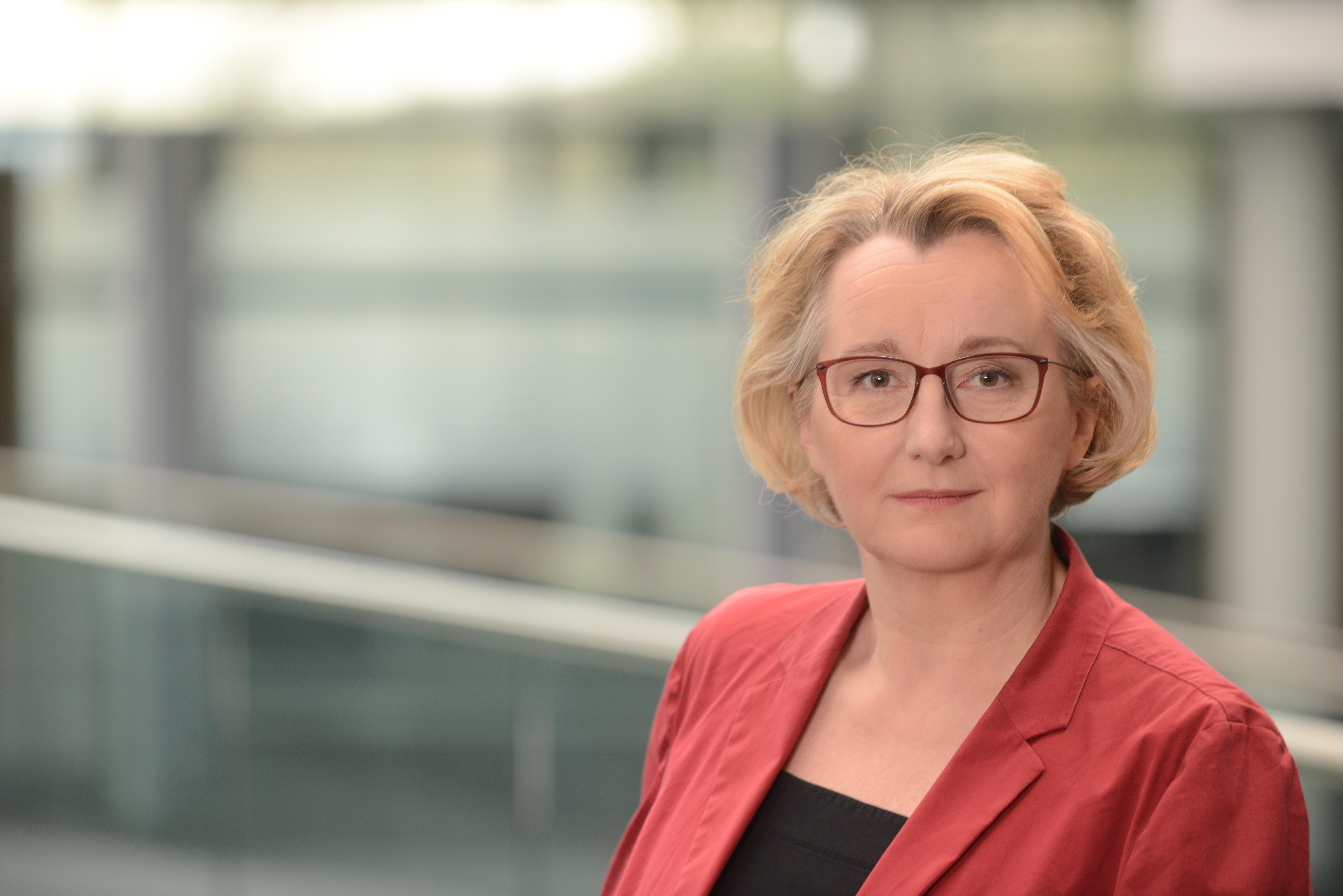 "Karlsruhe has played a significant role in establishing information technology in Germany and has played a pioneering role in the scientific institutionalisation of this immensely important subject for our society. We would like to congratulate Karlsruhe on this and on this anniversary", said Theresia Bauer, Minister of Science, Research and the Arts.
"Karlsruhe has played a significant role in establishing information technology in Germany and has played a pioneering role in the scientific institutionalisation of this immensely important subject for our society. We would like to congratulate Karlsruhe on this and on this anniversary", said Theresia Bauer, Minister of Science, Research and the Arts.
"Today, we at the KIT Faculty are researching the most diverse challenges of our digital society. In doing so, we benefit from the tradition of computer science at the Karlsruhe location. After all, Karlsruhe computer scientists have been researching many processes that we apply today - such as artificial intelligence and robot technology - for decades," explains Professor Bernhard Beckert, Dean of the KIT Faculty of Informatics.
The research strength of Karlsruhe as a location for information technology is also due to the interaction of strong partners. "The transfer of top-level research into finished applications and the linking of science and industry are the hobby-horses of Karlsruhe as a location for information technology. The foundation stone for the FZI Forschungszentrum Informatik, today an innovation partner of KIT, was laid at the Universität Karlsruhe (TH) in 1984. Together with our partners from industry, politics, and society, we have been developing IT solutions for various areas of everyday life in close cooperation with KIT ever since," explains Jan Wiesenberger, director of the FZI Forschungszentrum Informatik.
"The combination of the three institutions KIT, FZI, and Fraunhofer IOSB forms the perfect breeding ground for the sustainable implementation of great ideas. The interaction of university teaching, large-scale national research, and application-oriented research for industry creates unique opportunities. This constellation attracts outstanding minds from all over the world to Karlsruhe," adds Professor Jürgen Beyerer, head of the Fraunhofer IOSB and professor of computer science at KIT.
In research-oriented teaching, students also benefit from the broad-based research. They study at the pulse of computer science research and, as graduates, have the future-proof know-how that the economy demands. They are prepared in a research-oriented manner for the current tasks in business, science and society and, last but not least, they enliven the strong local start-up scene in Karlsruhe.
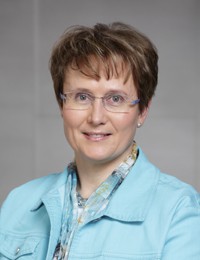
"The KIT Faculty of Informatics is a figurehead for the science location Karlsruhe," says Gabriele Luczak-Schwarz, First Mayor of the City of Karlsruhe. "Here, outstanding specialists who are drivers of their industry with innovative ideas and visions are trained. The local IT companies benefit directly from this, and Karlsruhe and the entire TechnologyRegion will be further strengthened as an attractive business and IT location.
The KIT Faculty of Informatics is one of the largest faculties in Germany with currently about 3500 students and more than 200 courses in the field of informatics. The quality of education is also reflected in the good results in the relevant national and international rankings. In keeping with the 50th anniversary, the number of graduates in computer science at KIT has exceeded the 10000 mark. In the winter semester 2018/19, more than 700 new students enrolled in the study course of computer science.
Today's KIT Faculty of Informatics is researching the major problems of our time, such as autonomous robotic assistance systems or artificial intelligence methods. Teaching benefits equally from current research and the long tradition.
Ralf Reussner, Vice Dean for Research of the KIT Faculty of Informatics, states: "Today, what was still the boldest vision for 50 years is true: in almost every technical innovation there is informatics, often even in the very core. With new business models made possible by it, computer science transforms society. Conversely, IT itself is also changing. The obligation arising from today's celebrated 50-year tradition is for us now and in the future to anticipate and shape this change in information technology here in Karlsruhe and to try to be a national and international role model, just as we did 50 years ago.
Unlimited possibilities
Exactly 50 years ago the first university computer science courses were established at the locations Karlsruhe, Dresden, Darmstadt, Munich and Saarbrücken. All five universities took this as an opportunity to celebrate together on 19.6.2019.
In addition to the official ceremony for the 50th anniversary in the morning with guests from politics, economy, and science, the KIT Faculty of Informatics also celebrated the end of the academic year 2018/2019 in the early evening with the farewell ceremony for the graduates and PhDs. The full-day program was rounded off in the lunchtime with two lectures by Prof. Jörn Müller-Quade and Jun. Prof. Franziska Mathis-Ulrich, who provided insights into computer science research with the topics "Cryptography Creates the Apparently Impossible" and "Innovations in Medical Robotics".

"Computer science in the age of digitalisation".
The important questions relating to the development and social impact of the discipline were addressed during the panel discussion (photo left) by Vice Dean Ralf Reussner, Vice President Oliver Kraft and Minister Theresia Bauer (from left to right) and during the demonstration of current research (photo right: Minister Bauer with Professor Michael Beigl). (Photos: Andreas Drollinger)
Dean Prof. Bernhard Beckert opened the academic ceremony in the early evening by welcoming the graduates, doctoral candidates, and all those present. A special greeting was addressed to the professors from the early days of computer science, who had come to the ceremony on behalf of Prof. Goos and Prof. Lockemann and who, along with numerous other professors, have contributed to the success of the program over the last 50 years.
This was followed by the annual dean's report on the highlights of the previous year, which include important events such as the Cybathlon or the KIT annual party, which this year focused on the topic of artificial intelligence. In addition, he provided insights into the personnel, content, and structural changes of the past year, which are not only manifested in the change from the course of studies in Information Management to Business Information Systems starting in the winter semester 2019/20, but are also reflected in the new professorships of the past years, and with topics such as AI, machine learning, and application-oriented research, the current trend areas are clearly shown.
Before the award ceremony, Mr. Beckert addressed the graduates once again and congratulated them with the words: "They have shown perseverance, continuity in learning and determination, and today they are receiving the symbolic reward in the form of the certificate of completion. The degree in computer science opens up the world to them. No matter whether they go into business, stay in research or start a start-up - with the degree from Karlsruhe they can choose their employer. Your possibilities are unlimited." He particularly encouraged all those who are thinking of pursuing a doctorate to follow this path.
The first awards were presented by the KIT Center Information - Systems - Technologies (KCIST), in cooperation with the Gisela and Erwin Sick Foundation and the KIT Foundation, to honor outstanding scientific work in the research field of KCIST.
The prizes were awarded for the first time this year and honored the best final thesis and the best dissertation in 2017 and 2018 respectively.
With the farewell of the 16 doctoral candidates and their sometimes spectacular and elaborate doctoral hats, the first part of the awarding of the certificates was rung in. Together with partners, such as Uniserv GmbH, Robert Bosch GmbH and the Erika and Dr. Wolfgang Eichelberger Foundation, it is possible to award prizes for outstanding theses and doctorates every year: The laudations for the best application-oriented master's thesis as well as the prize for "Best Graduate" were held by Prof. Müller-Quade. Dr. Heiko Papenfuß was present for the presentation of the Uniserv Research Prize.

from left to right: SICK Science Prize, Research Prize "Algorithms for Efficient Data Processing", sponsored by Uniserv, Prize for the best application-oriented master's thesis, sponsored by Robert Bosch GmbH (Images: Andreas Drollinger / KIT)
In five groups, the graduates from computer science and information management were called upon to receive their congratulatory letters from KIT Dean Beckert. In order to complete the computer science program as one of the best 10% of all graduates, the grade 1.5 was to be achieved in the Bachelor's program and 1.2 in the Master's program.

The PhD students and graduates of the academic year 2018/2019 (Pictures: Andreas Drollinger / KIT)
Before the second part of the graduation ceremony, Dr. Sven Schmidt-Rohr presented in the traditional alumni lecture his way to success with his company ArtiMinds Robotics and recommended the graduates to take the step to self-employment. But not without pointing out that the entry into professional independence is also equivalent to a permanent exam phase.
With the farewell of the last graduate, the starting signal was given for the following faculty party, which is traditionally organized by the Fachschaft Informatik and the Forum Informationswirtschaft. This gave all visitors the opportunity to enjoy the evening in front of the Audimax.
We have put together some impressions of the event in our picture gallery.
Awards and prizes:
SICK's science prizes for the best final theses were awarded:
Matthias Grundmann (2017)
"Analysis and Evaluation of Analysis Methods for Topology Inference in the Bitcoin Peer-to-Peer Network"
Jonas Sour (2018)
"Faster Public Transit Routing with Unrestricted Walking"
SICK's science prizes for the best dissertations went to
Dr. rer. nat. Max Kramer (2017)
"Specification Languages for Preserving Consistency between Models of Different Languages"
Dr.-Ing. Florian Pfaff (2018)
"Multitarget Tracking Using Orientation Estimation for Optical Belt Sorting
Research prize "Algorithms for efficient data processing", donated by the company Uniserv: Dr. rer. nat. Timo Bingmann
Prize for the best application-oriented master's thesis, sponsored by Robert Bosch GmbH: Johannes Glöckle, M.Sc.
Prize for the best graduate 2018/19, donated by the Erika and Dr. Wolfgang Eichelberger Foundation: Jonas Rothfuß, M.Sc.
The KIT Faculty of Computer Science wishes all graduates and postgraduates every success and all the best for the start of their professional life and further studies!
We thank our partners and sponsors!
Advanced Sponsors

Basic Sponsors
Award donor
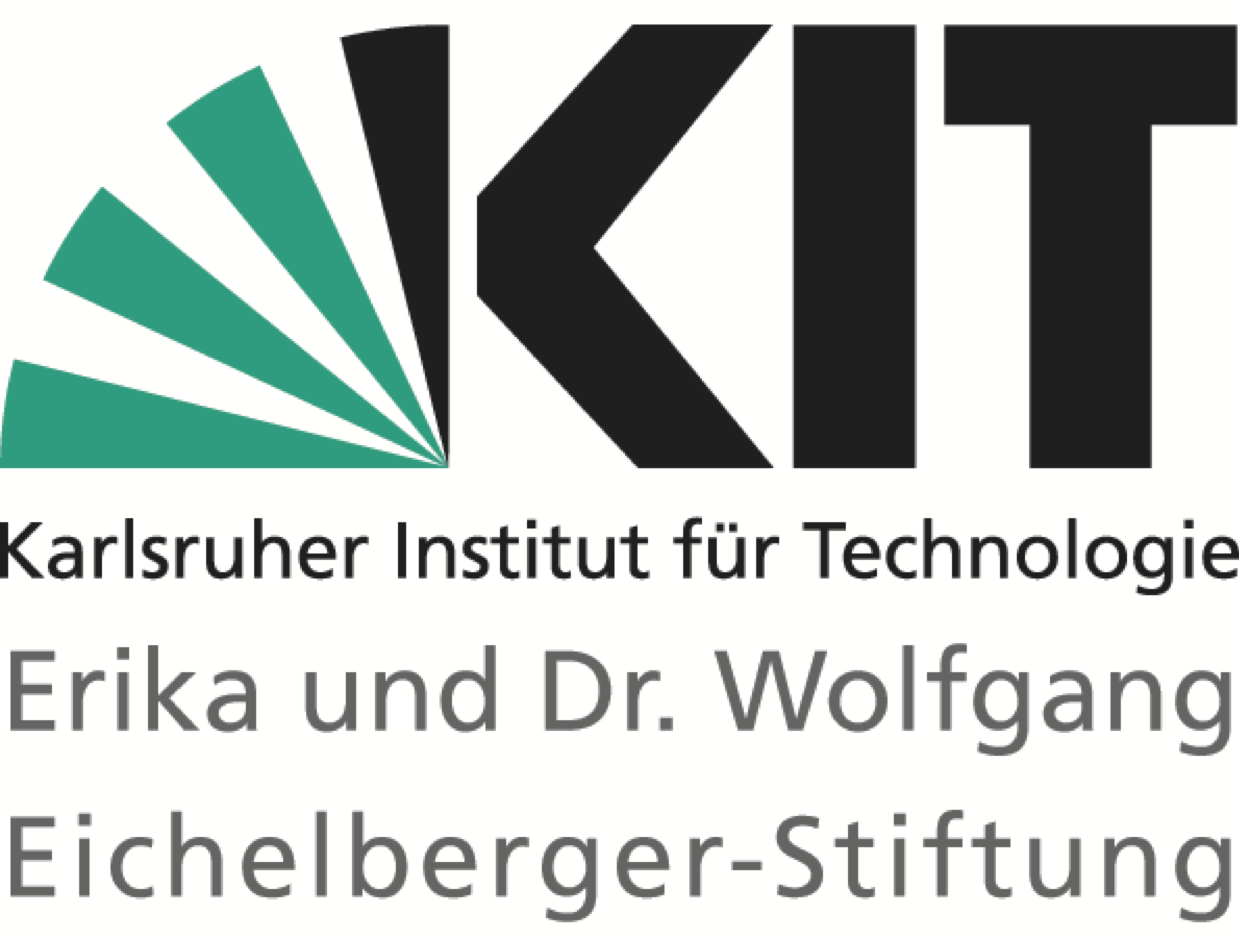 |
student council and student organizations
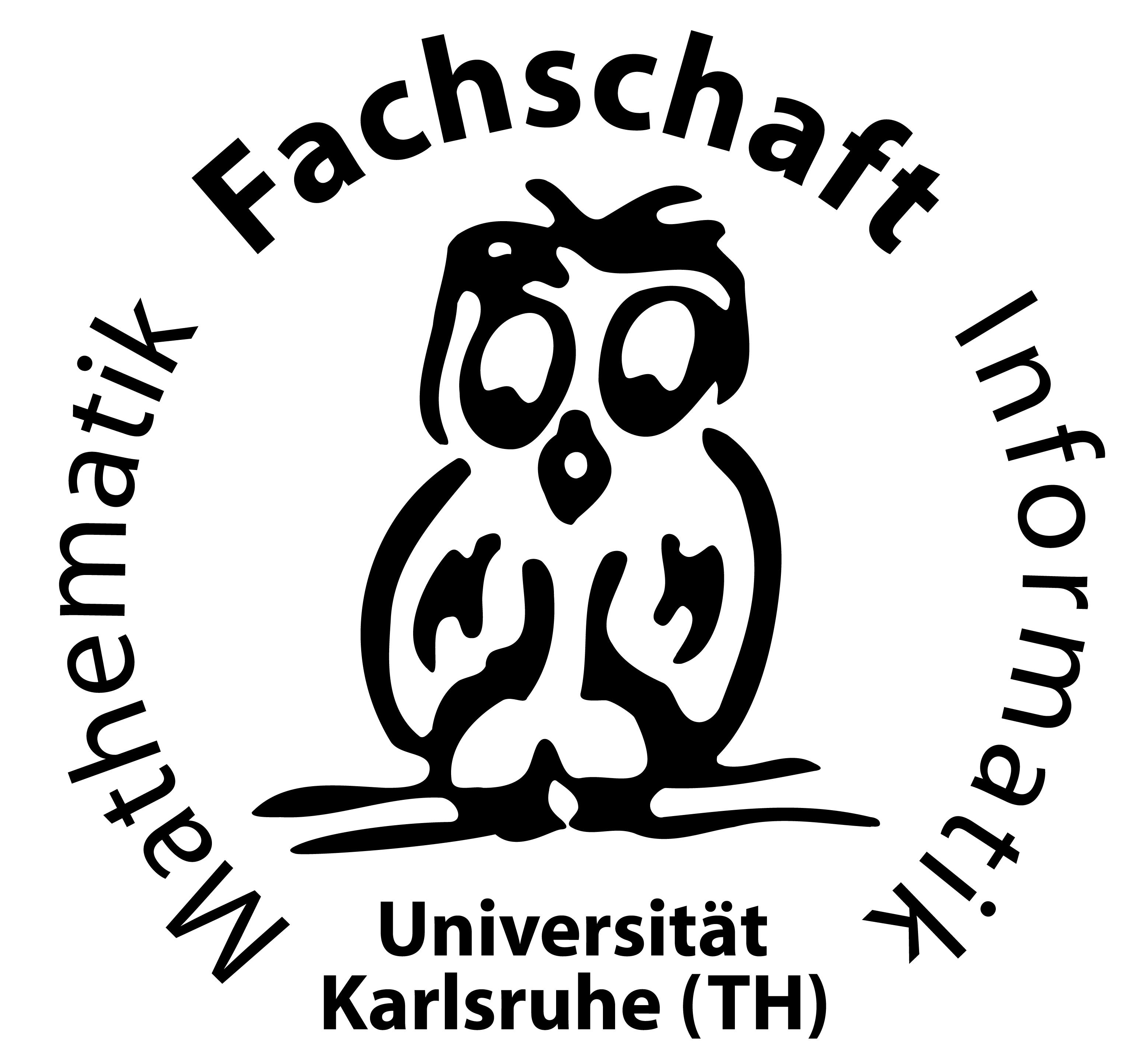 |
 |
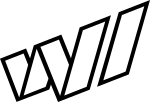 |
Contact
KIT Faculty of Computer Science
Am Fasanengarten 5, building 50.34
76131 Karlsruhe
Phone: +49 721 608-43976
e-mail: absolventenfeier ∂does-not-exist.informatik kit edu
